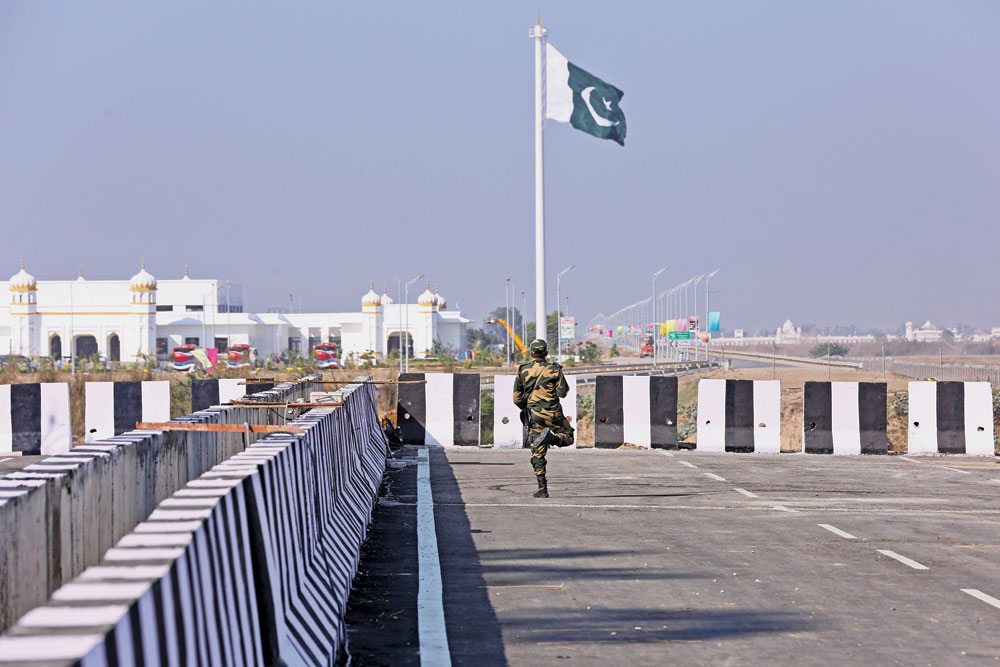
Pakistan’s creation of the Kartarpur Corridor is a historic gesture aimed at promoting religious harmony. This initiative is a milestone, facilitating the pilgrimage of Sikh devotees to the revered Gurdwara Darbar Sahib Kartarpur. The corridor represents more than just an infrastructure project; it is a symbol of peace and cooperation between two nations with a complex history.
The construction of the Kartarpur Corridor has significantly eased the pilgrimage for Sikhs from India. With visa-free access, devotees can now visit the shrine seven days a week from dawn to dusk, highlighting Pakistan’s commitment to supporting the Sikh community’s religious practices. This initiative eliminates bureaucratic hurdles, allowing pilgrims to focus solely on their spiritual journey. The rapid completion of the Kartarpur Corridor within a year showcases Pakistan’s prowess in infrastructure development. The project included building roads, bridges, reception centers, and a complex around the shrine, all designed to provide a welcoming environment for pilgrims. This efficient execution not only reflects Pakistan’s dedication to the project but also its capability in mobilizing resources and manpower effectively.
Pakistan’s decision to impose a nominal $20 service charge on each visitor ensures the sustainability of the shrine’s facilities. This fee is modest compared to the expenses incurred by pilgrims traveling to other religious sites worldwide. By keeping the cost low, Pakistan makes the pilgrimage accessible to a broader range of devotees, fulfilling a crucial need for economic inclusivity. This arrangement, outlined in the bilateral agreement between Pakistan and India dated October 24, 2019, reflects mutual cooperation and understanding.
Despite ongoing tensions, including the Indian security forces’ crackdown on Kashmiris and the unilateral changes to Kashmir’s status, Pakistan remains committed to peaceful cooperation. The Kartarpur Corridor is a testament to Pakistan’s willingness to engage positively with India. This initiative symbolizes hope and demonstrates that dialogue and cooperation can prevail even amidst political strife. The Indian government has attempted to downplay Pakistan’s sincere efforts, portraying them as strategically motivated. These claims are unfounded and detract from the genuine progress achieved through the Kartarpur Corridor. This project should be recognized as a humanitarian and religious effort, rather than being viewed through a political lens.
The BJP-led Indian government has focused on minor issues such as the $20 service charge and the presence of the US consulate in Amritsar, rather than addressing more significant concerns. This diversion overlooks the economic hardships, farmer demands, and job scarcity plaguing Punjab. The BJP’s neglect of these critical issues highlights a disconnect with the people, particularly the youth, who are increasingly disillusioned with the current government. The youth in Punjab have shown their disapproval of the BJP’s policies, which they perceive as out of touch with their needs and aspirations. The economic difficulties and lack of job opportunities are more pressing concerns for the population than the nominal fee for visiting the shrine. The BJP’s focus on peripheral issues rather than substantive problems reveals its failure to connect with the grassroots realities of Punjab.
The Kartarpur Corridor is more than just a physical pathway between two nations; it is a bridge of peace and a symbol of religious tolerance. Pakistan’s initiative to facilitate Sikh pilgrims is a genuine effort to foster harmony and understanding. The infrastructure development, visa-free access, and minimal service charges contribute to making the pilgrimage accessible and affordable. Despite political tensions and attempts to misrepresent facts, the Kartarpur Corridor remains a beacon of hope. It exemplifies Pakistan’s commitment to peaceful means and its willingness to engage constructively with India. This initiative should be recognized for its true purpose – to promote religious freedom and peace. The Indian government would benefit from acknowledging and supporting such efforts instead of focusing on trivial issues. Addressing the real economic and social challenges facing Punjab should be a priority. The youth of Punjab, disillusioned with the current government, seek leadership that understands and addresses their needs. The Kartarpur Corridor serves as a reminder that cooperation and goodwill can transcend political barriers. It stands as a testament to the potential for peaceful coexistence and mutual respect. As such, it deserves celebration and support from both nations and the international community.
